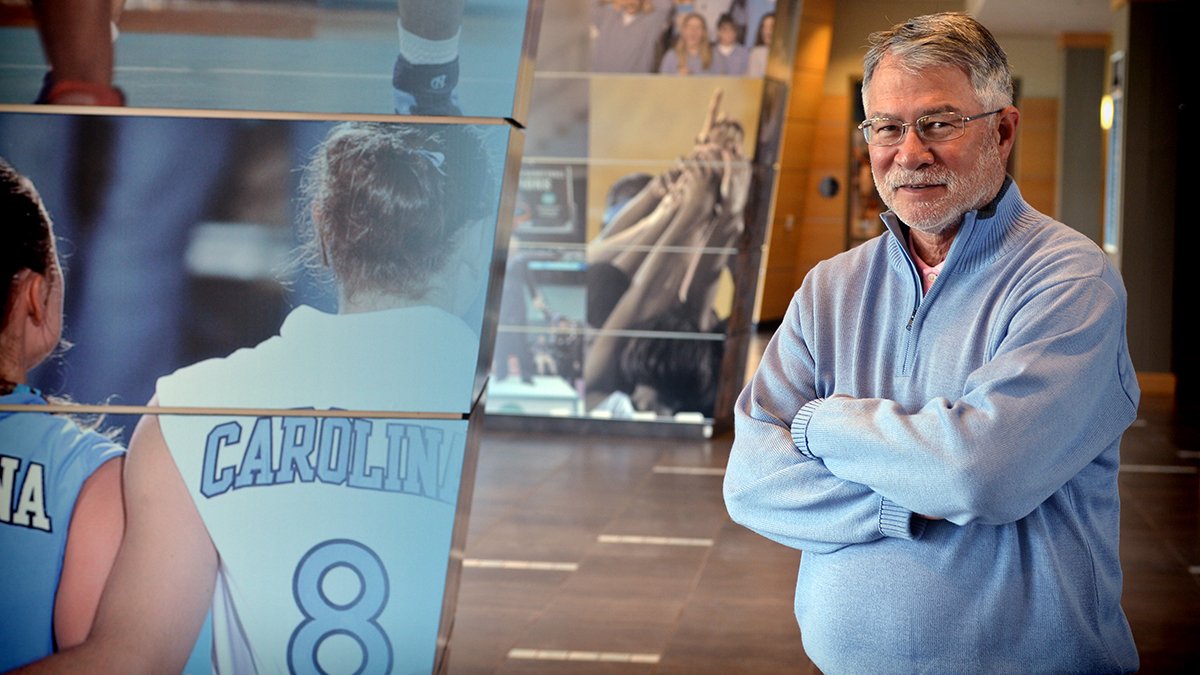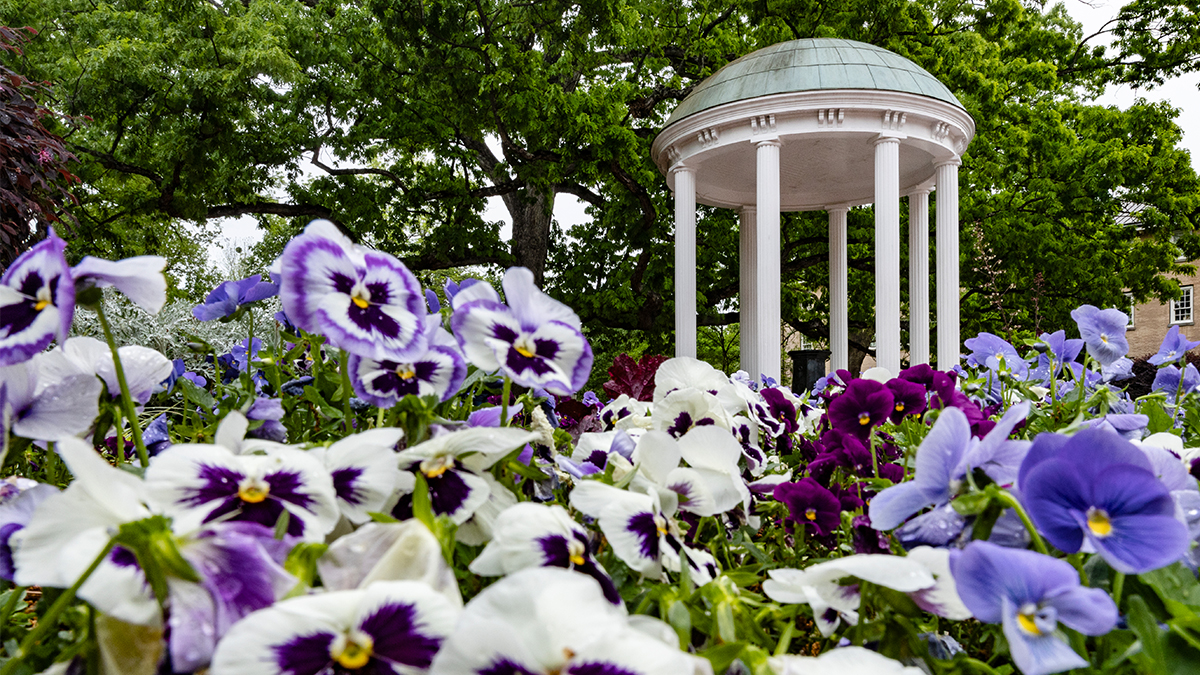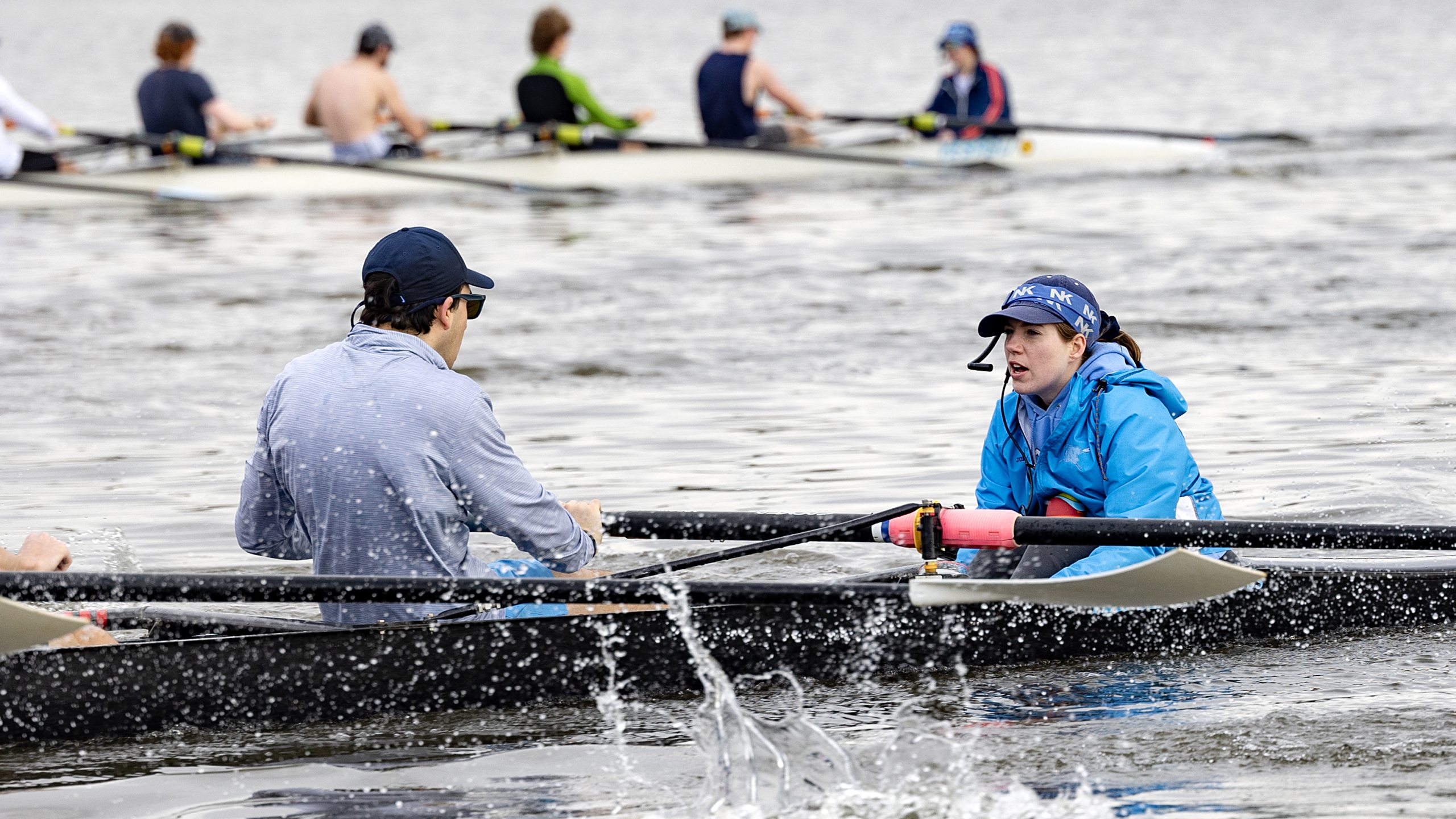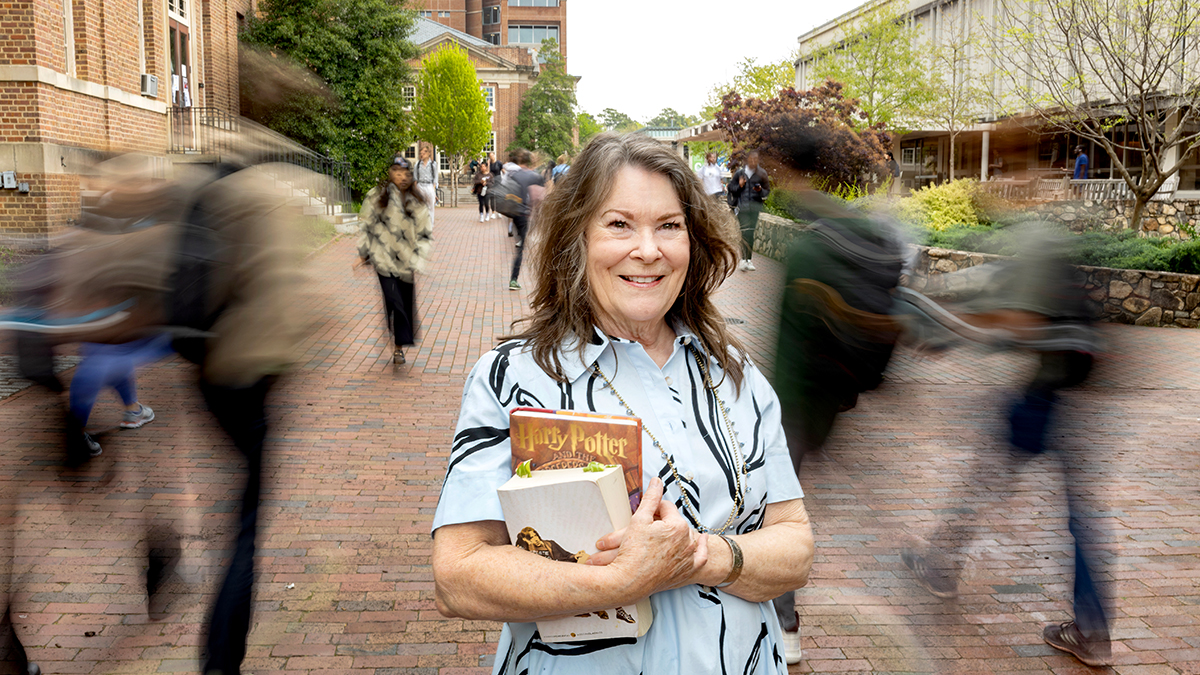Few words, many deeds, all for love
Willie Scroggs, a longtime athletic administrator responsible for operations and construction of numerous athletic buildings, will retire at the end of June.

Willie Scroggs planted the seed for his first retirement twenty years before he left at the top of his profession as Carolina’s lacrosse coach.
His decision to retire from coaching in 1990 seemed sudden to many. His second – and final – retirement from UNC is a slower walk past the people and places he helped build up.
Scroggs, three-time NCAA title coach and longtime athletic administrator responsible for operations and construction of numerous buildings serving teams, fans and the University community, will retire at the end of June.
His first retirement came largely out of love.
That part of his story began almost a decade before, when a years-old idea sprouted back to life as a young field hockey coach named Karen Shelton came to Carolina.
In 1981, Scroggs voluntarily moved from Carmichael Arena to what was known as the Women’s Gym during a construction project. Shelton took the office next to his, and eventually Scroggs “got up the courage to ask her out on a date.” They married three years later. Their son, Will, was born in 1990.
A pivotal time
It was pivotal time for Scroggs, with a strong lacrosse family and a flourishing personal family. His hard work and success were evident to those around him, just as they are today.
Ellen Culler, assistant athletic director for athletic event management, described Scroggs as “a man of few words who loves people.” Others use similar words to describe him: loyal, calm, delegating, expecting, prepared, thorough, methodical, intuitive, quiet.
And there is one more: love.
It is evident in what former Athletic Director Dick Baddour, a longtime friend of Scroggs, said: “The thing that always impressed me about Willie is that, whether it was in lacrosse or operations or wherever, he sees the big picture. Everything he did, whether it was coaching or operations or later facilities, he did it in the context that this is for the University of North Carolina.”
Baddour met Scroggs in 1978 when the former AD worked as the undergraduate admissions liaison to athletics, and the young coach had just come to Carolina. The two were interested in students from the same schools, so they traveled together.
Looking back at Scroggs’ career, Baddour said, “Think of all that he has accomplished!”
From the excitement of winning lacrosse championships to coordinating the complex logistics of game-day operations to overseeing facilities projects, Scroggs has profoundly influenced Carolina athletics. The facilities bearing a Scroggs stamp include:
- Carmichael Arena renovation
- Chapman Golf Center
- Boshamer Stadium transformation (baseball)
- Kenan Stadium projects – press box, west end zone, North box.
- Eddie Smith Field House, including demolition of the Old Tin Can (track and field)
- Fetzer Gym addition (wrestling)
- McCaskill Soccer Center
- Anderson Softball Stadium
- Woollen Gym renovation (volleyball, women’s rowing, campus recreation, club sports, dance & martial arts groups, & more for the UNC community)
- Stallings-Evans Sports Medicine Center(varsity, club, intramural participants & clinical education)
- Henry Stadium (field hockey).
Legacy of people
The facilities seem enduring, but Scroggs’ legacy will be the people he’s influenced.
They know that whether it was as coach or as point person for the 1999 Special Olympics World Summer Games in Chapel Hill or as chair of a campus-wide committee that reinvented parking on campus, his approach to work and life made Scroggs successful.
His success at Carolina began in 1978. He was an assistant coach for lacrosse and football at John Hopkins University and a candidate for several plum jobs, but he wasn’t sure which sport he wanted to coach.
Carolina’s athletic director Bill Cobey was ready to hire a new lacrosse coach. He went to watch Scroggs on the sideline during a Hopkins game on a cold, rainy day.
Mistaken identity
A case of mistaken identity almost stopped it all.
After the game, the Hopkins athletic director asked Scroggs to come to his office to meet Cobey.
Scroggs, who thought it was practical joke, remembers, “I walked into his office – didn’t even take off my hat and coat –Cobey was sitting there.”Cobey had been mistakenly told to watch another assistant, Scroggs’ friend Joe Cowan – “ the complete opposite of me – a yeller, breaks clipboards, jumps up and down.” Cobey said, ‘Oh! If you were who I thought you were, I wasn’t going to be interested in you.’ I said ‘what do you mean?’”
After the meeting, Cobey invited Scroggs to Chapel Hill, where Scroggs saw a program that included “good players, a terrible locker room, great support in admissions and a wonderful sports medicine program.”
The job was soon his.
Scroggs later learned how many people had suggested his name to Cobey. They include former UNC swim coach Frank Comfort, who had coached at Hopkins; Buddy Beardmore, who was head coach at Maryland; and former NFL Colts player Elmer Wingate, whose son played lacrosse at UNC.
‘Get good kids we’ll be proud of’
He began with Cobey’s single goal. “Get good kids that we’ll be proud of.” He soon expanded with his own goals.
Scroggs so was also appointed the athletic department’s assistant business manager and put in charge of the ticket office and equipment room. He began most days answering phone calls and taking orders. Cobey later asked him to take game-day operations., and he worked alongside assistants Richie Meade, Don Zimmerman and Dave Klarmann.
“I made all those situations kind of team situations. If I gave them something to do, I expected it to be done, and I sometimes learned how to do and how not to do things.”
The how-not-to-do was important to him.
‘Chilly Willy’
Scroggs said he inherited many of his personality traits from his Japanese mother. “I don’t fly off the handle. I’ve always been like that,” he said. “The kids used to call me ‘Chilly Willy’ because I was under control. I’m not a yeller. But I can be intense. I can get your attention when I want to.”
His behavior was so steadfast that people noticed any deviation. In an Atlantic Coach Conference championship game, Scroggs thought that Virginia had too many players on field. “It’s a penalty and gives us a man advantage. The coach, Ace Adams, is trying to get them off the field. Then I went crazy. Wouldn’t let anyone leave the field, and the referee says ‘Willie, it must be the truth because I’ve never seen you like this.’”
In addition to his steadfast behavior, Scroggs also believed in treating players fairly and like family, even when there were true brothers on the team.
“We were big in the brother department.” There were the Sievolds, Welshes, Tumillos, Wingates, the three Cox brothers, and others.
“I didn’t take a kid thinking he would beat out someone who was already in the position. They were all fine, and they were good boys. It worked well for us.”
Fractured family
Growing up in Baltimore, Scroggs’s own family fractured when his father, an Army MP during World War II, got hurt and lost his job as a policeman. He became an alcoholic who left the family when Willie reached fifth grade.
“My mother was tough. She wasn’t formally educated, but she was a hard worker. She left the house at 5 or 6 in the morning to work in a raincoat factory.” When Scroggs was in middle school, she developed tuberculosis and lived in a sanitarium for two years. Scroggs says that he lived with various relatives, and took refuge in sports.
Through sports he found another family, beginning with “the greatest high school coaches you could ever imagine.” His football coach, George Young, was a history teacher who took Scroggs to college football games and would become general manager of the New York Giants and Miami Dolphins.
Scroggs also learned from negative experiences as a college player and as an assistant at the Gilman School and Hopkins. He started wondering about a time when he wanted to go out on top.
The years-old idea lay dormant until 1990, when it sprouted into many thoughts.
He didn’t want to become out of touch with his players. He had accomplished everything he’d set out to do with the program. He had another job in athletic operations that he could take fulltime. Then, there was the deciding factor – his family at home.
The deciding factor
With their son on the way, he and Shelton made the decision together for Scroggs to leave coaching. “I was able to coach little league, baseball, soccer, lacrosse for Will,” he said. “I’ve been a better husband and able to support Karen better.”
His family on the field was doing great, too. “That 1990 season, the kids were probably the best group I’ve ever been around. All of them – wonderful kids. Every day was so much fun. ”
Still involved on key college lacrosse committees, Scroggs is not retiring from what he loves, though.
The seed planted long ago still bears fruit, a legacy of Carolina people and places.
Read what others say about Scroggs.




